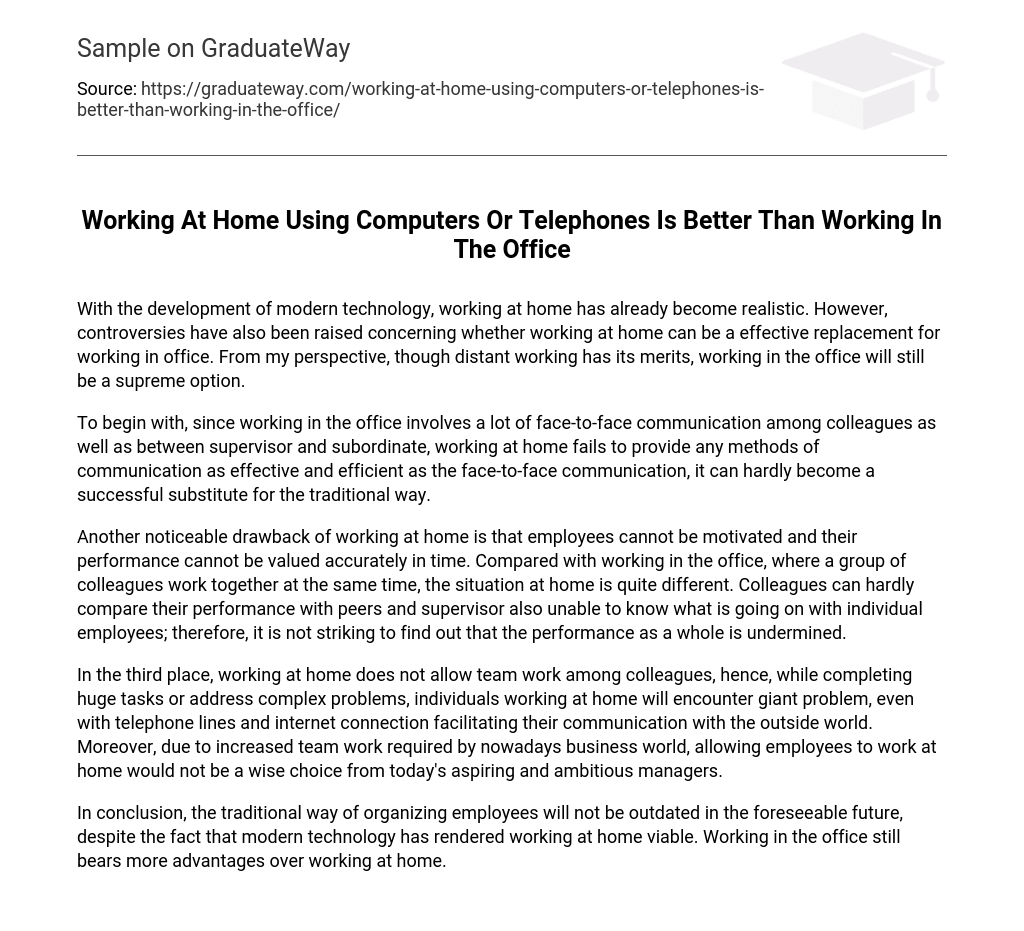With the development of modern technology, working at home has already become realistic. However, controversies have also been raised concerning whether working at home can be a effective replacement for working in office. From my perspective, though distant working has its merits, working in the office will still be a supreme option.
To begin with, since working in the office involves a lot of face-to-face communication among colleagues as well as between supervisor and subordinate, working at home fails to provide any methods of communication as effective and efficient as the face-to-face communication, it can hardly become a successful substitute for the traditional way.
Another noticeable drawback of working at home is that employees cannot be motivated and their performance cannot be valued accurately in time. Compared with working in the office, where a group of colleagues work together at the same time, the situation at home is quite different. Colleagues can hardly compare their performance with peers and supervisor also unable to know what is going on with individual employees; therefore, it is not striking to find out that the performance as a whole is undermined.
In the third place, working at home does not allow team work among colleagues, hence, while completing huge tasks or address complex problems, individuals working at home will encounter giant problem, even with telephone lines and internet connection facilitating their communication with the outside world. Moreover, due to increased team work required by nowadays business world, allowing employees to work at home would not be a wise choice from today’s aspiring and ambitious managers.
In conclusion, the traditional way of organizing employees will not be outdated in the foreseeable future, despite the fact that modern technology has rendered working at home viable. Working in the office still bears more advantages over working at home.





